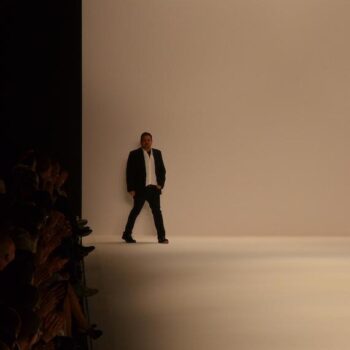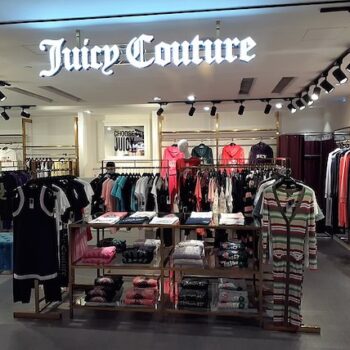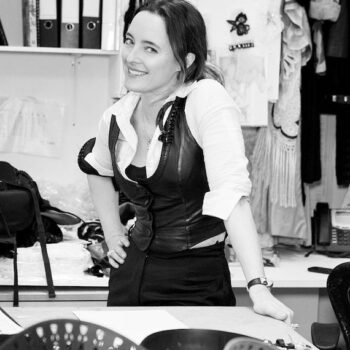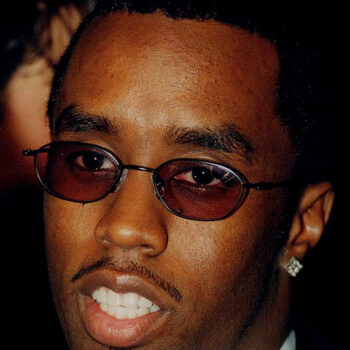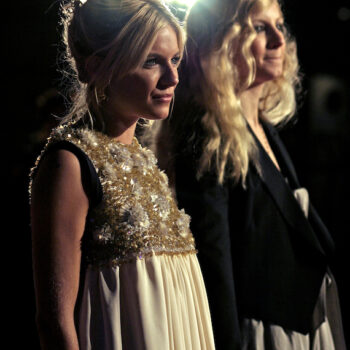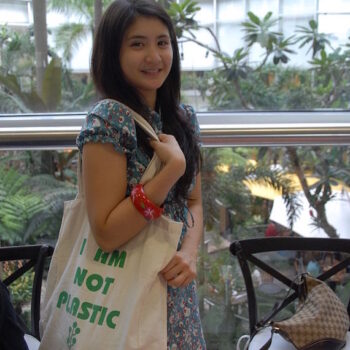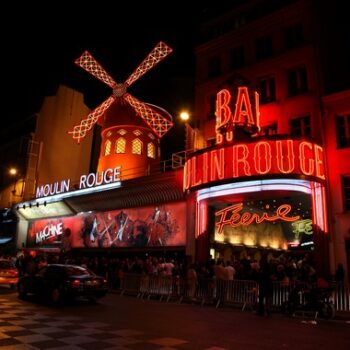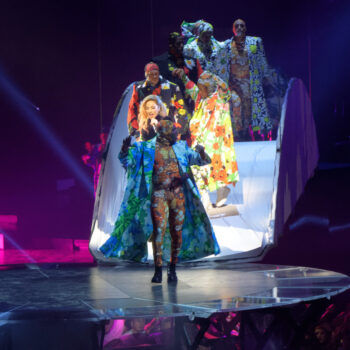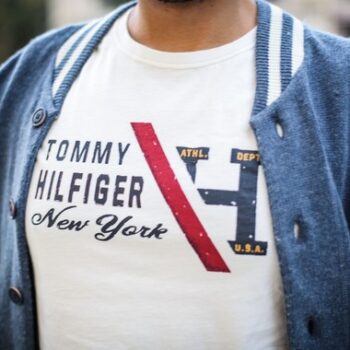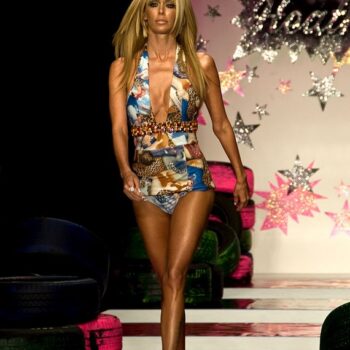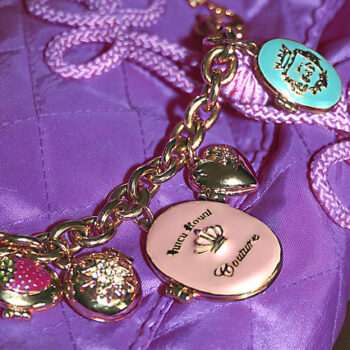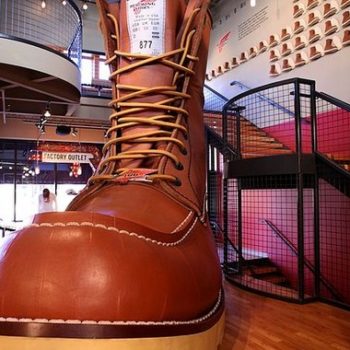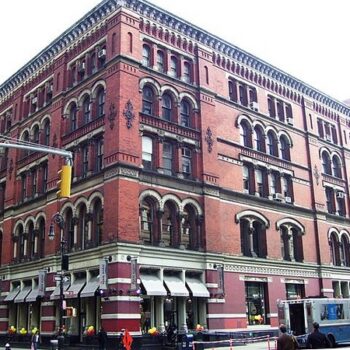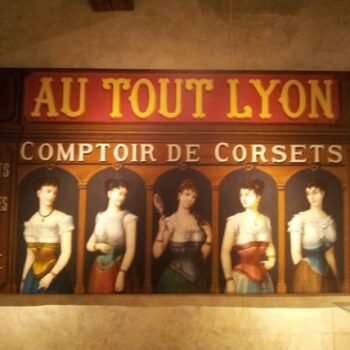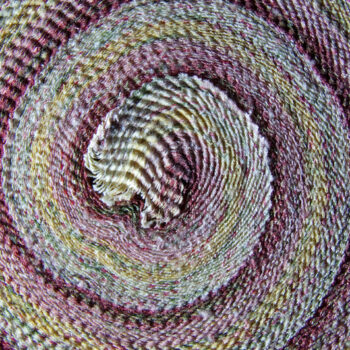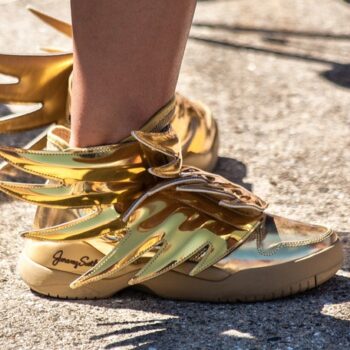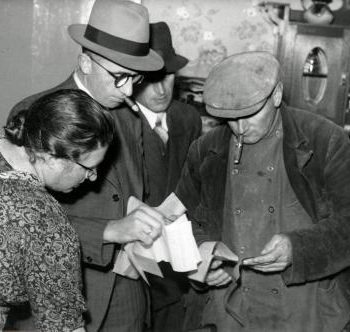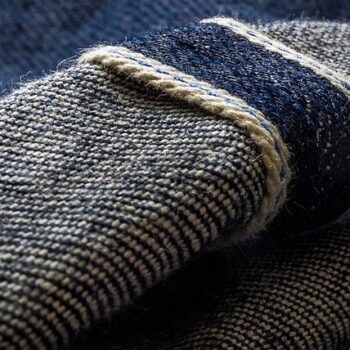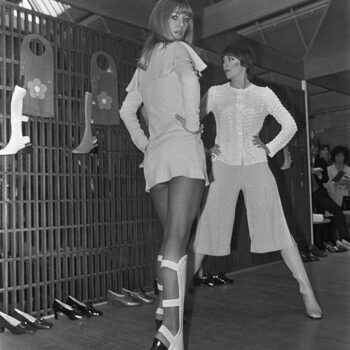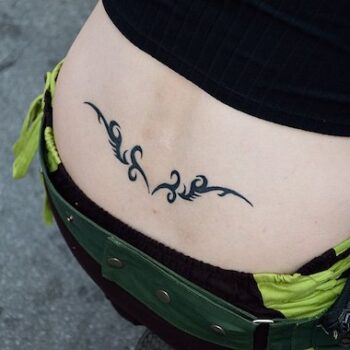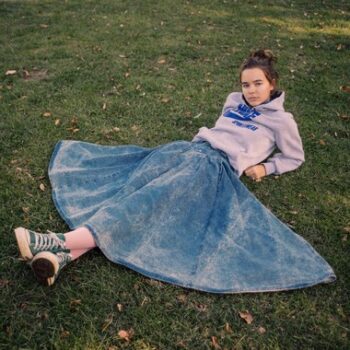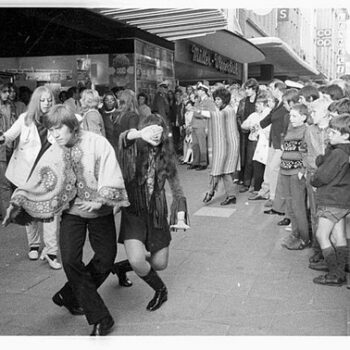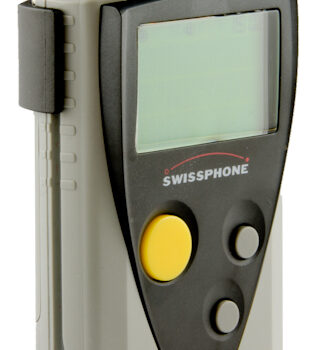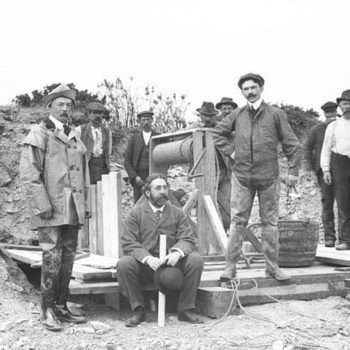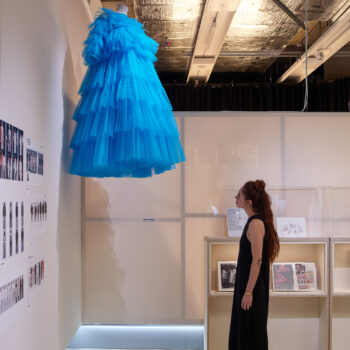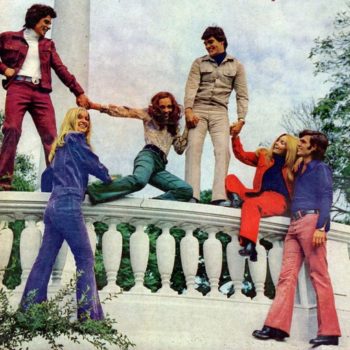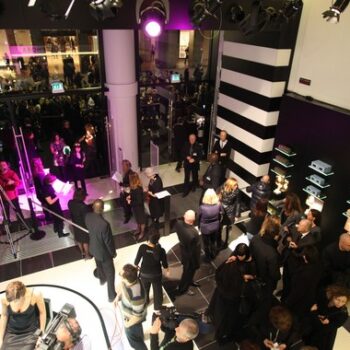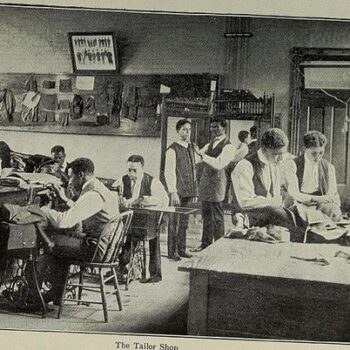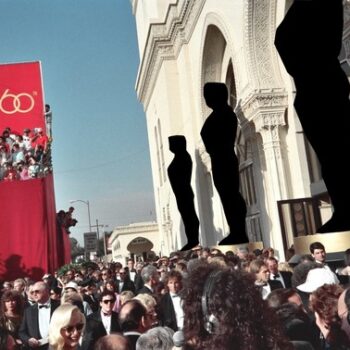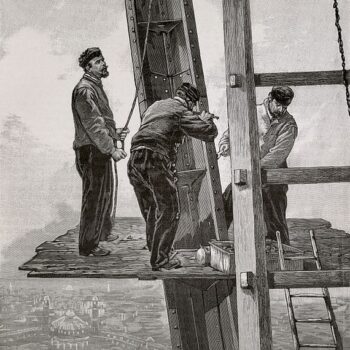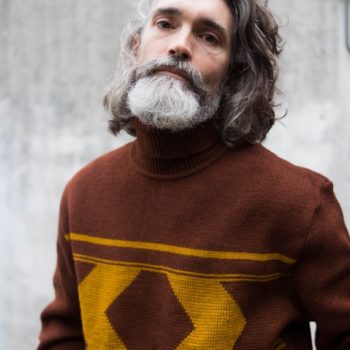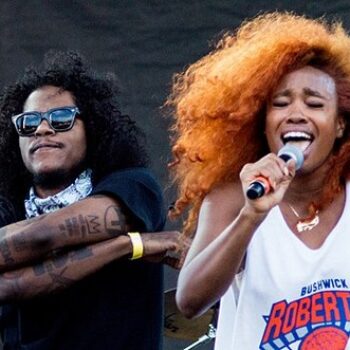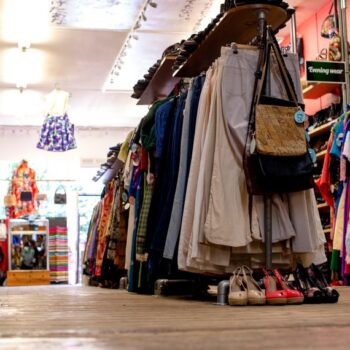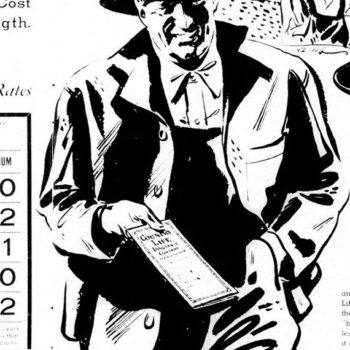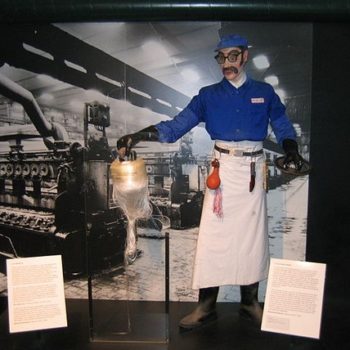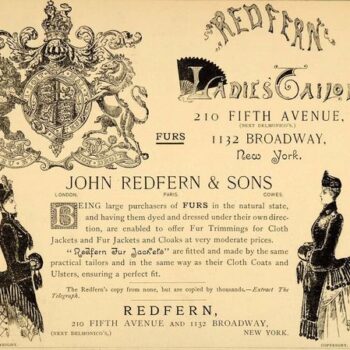What are the best 2000s fashion brands and why
September 5, 2022There were many new 2000s fashion brands which started in the Millennium. Some survived and are still big today, some were a flash in the pan. If you think that the early aughts were all about trucker hats, Von Dutch, Ed Hardy, and Juicy Couture clothing brand, you might be surprised. Let’s take a look at the best of the crop.
Sean John

2000s fashion brands – A Sean John billboard on Broadway. Image via Wikipedia.
Born Sean John Combs, and now known as Sean Love Combs, the man who shot to fame as a rapper with his 1997 song Can’t Nobody Hold Me Down has changed his name as often as his socks. And sometimes he doesn’t even wear socks under his designer loafers. So. Anyway, Puff Daddy, Puffy, Diddy, P. Diddy or Love created a clothing line called Sean John in 1998.
He was then a major celebrity with a million celebrity friends, seemingly all of whom wore his clothing. The highly featured logo was a handwritten version of its name, looking like a signature. When the rapper started going out with J-Lo in 1999, she wore his clothes in public all the time.
The style of the label was ghetto streetwear. It incorporated jeans, fur coats, crop tops, and t-shirts, often with diamanté embellishments and that kind of thing. He promoted the heck out of it and held catwalk shows, and it actually won Menswear Designer of the Year in 2004. There was backlash against the conditions of the factories where the clothing was made, and also because the brand used dog fur. To be fair, it is a problem with all fast fashion that it’s difficult to maintain a grip on supply chain materials and conditions. Sean John rectified the problems when they were brought to his attention.
2000s fashion brands – Juicy Couture
Juicy Couture is an LA fashion brands started by two friends, Gela Nash and Pamela Skaist-Levy. It became phenomenally successful in the 2000s after sending celebrities like Britney Spears and Madonna some of its fruity coloured velour tracksuits. They apparently loved them, and were photographed all the time wearing them off duty.
The outfits were appealingly fun, reassuringly expensive, and a little bit trashy. They were also comfortable and carefully designed with features not often seen in a tracksuit, which are more often baggy and shapeless. They were made out of soft, stretchy velour, thick enough to skim lumps and bumps. The trousers were bootcut because it’s flattering for legs. This was also a fashionable silhouette at the time. The zipped top featured a kangaroo pocket at the front, which helped to disguise stomachs that were not flat – designed by Skaist-Levy after she had given birth.
Cheap Monday
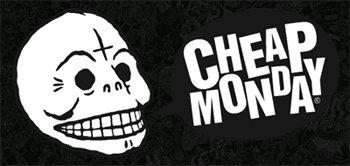
Cheap Monday logo. Image via Wikipedia.
Cheap Monday was an extremely cool Swedish fashion label selling jeans, t-shirts, trainers and shirts, that kind of thing. This brands group is not for Paris Hilton or Britney Spears! It started out in Stockholm as a second hand clothing shop in 2004. The shop was only open on Sundays, hence the name. Then the founders Örjan Andersson and Adam Friberg also started designing and manufacturing jeans, and finally expanded to other items. They had shops in London, Paris, Beijing and Shenyang, as well as temporary popups, and were also sold through Urban Outfitters and other places.
H&M bought the brand out in 2008, and closed in down in 2018.
2000s fashion brands – Frost French

Sadie Frost (centre, in transparent black dress) with other cool London party girls, actors and models in the 2000s.
Sadie Frost was one the It Girls of the 90s, a close friend of Kate Moss and part of the notorious Primrose Hill party group. In 1999, along with childhood friend Jemima French, she set up underwear brand Frost French. The brand quickly also expanded to womenswear. In 2001 Kate Moss gave an infamous striptease where she stripped down to their lingerie, boosting the brand no end.
The image of the brand was of a cool London girl, because that’s the kind of clothes Frost would wear herself. These were delicate, feminine dresses, often with interesting detailing like collars, lace inserts, or prints. The underwear was sexy but playful as well.
In 2004 they won the Elle Style Award for “Best British Designer”. The brand had just two shops, in Islington and Soho, London, although they did a lot of collaborations. The shops closed in 2011 and the brand wound down.
Pearl Lowe
I can’t mention Sadie Frost without also mentioning Pearl Lowe. She was a part of the Primrose Hill set, too. Ever glamorous, she was always in vintage or vintage-style outfits. She fronted a couple of bands in the 90s, had a solo music career, and in the 2000s designed interiors and dresses based on her own style. Oddly she also had a collaboration with uber cheap British brand Peacocks. She was on TV and wrote newspaper and magazine design columns. Her fashion brands and other ventures were generally short-lived, but she especially epitomised 2000s style and she is currently selling her vintage-inspired dresses once again.
2000s fashion brands – OBEY
OBEY THE GIANT HAND! Shepard Fairey was a skateboarder who decided to do an experiment in phenomenology in the form of a street art project. He plastered stickers featuring an abstract face with the word “obey” underneath it around American towns, and also spread the project by making the stickers available world-wide and encouraging others to do the same. They were stuck on lamp-posts and other street furniture and became a ubiquitous sight.
There was a real fashion for stickers as street art at the time, because you could get sticker paper for your home printer, and therefore design and print out your own stickers relatively inexpensively.
Anyway, Shep Fairey’s design was meant to make you question the nature of advertising that was all around. In his Manifesto, which you can read here, he says: “Many stickers have been peeled down by people who were annoyed by them, considering them an eye sore and an act of petty vandalism, which is ironic considering the number of commercial graphic images everyone in American society is assaulted with daily.”
It’s nothing new for a street artist to start a t-shirt company. Fairey’s was founded in 2001 and was very successful, due to the imagery being so very recognisable. As some anonymous commentator in the internet wrote:
“…it’s a little ironic that Obey was founded on the idea that you can brainwash people into almost anything with advertising, and now the company has blown up, and now feeds into the consumerism that it was originally was against…”



